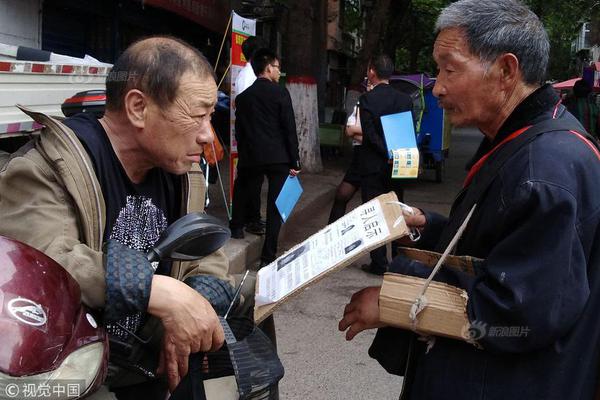Have a question about something you can love sex videosee but can't describe? Just ask Google.
Google has unveiled what seems like a really useful and almost scarily advanced new way to search with images.
Google Lens already lets you search based on an image. For example, if you take a picture of an elephant, you'll probably get Google Lens search results back for "elephant." But now, you can tap a picture you've taken, or one that you've saved in your library, and ask a question about it. Take the elephant: Just tap the photo for the ability to "Add Questions," and a text box will pop up where you can plumb Google for more information about that specific image, like "What kind of elephant is this?," or "How many of these elephants are left in the world?"
That involves so many layers of AI processing it's actually hard to comprehend. It understands what's in the picture, it understands your question, and it understands how your question relates to the picture. And, of course, it (ostensibly) gives you the answers you're looking for. What?!?
Making it all possible is a new, more advanced AI system called Multitask Unified Model (or MUM), announced in May, that is beginning to power Search. Google has been slowly rolling out applications for the new tech that's capable of processing queries in more complex ways, and delivering results that Google believes will be more relevant or instructive than before.
The change to Lens is one of the most eye-popping yet, and the examples for queries Google provides show off just how smart MUM is. You can ask Google Lens about a pattern on a shirt, and whether that same pattern comes available in socks: Et voila, you get the exact product listing.
Via GiphyOr here's an example of someone snapping a picture of a broken bicycle component. Showing Google Lens the picture of the broken part, and asking "how to fix," delivers both what the exact broken part is, AND how to fix it.
Via GiphyBoth of these sorts of questions would be difficult to answer without the visual component. For the pattern, you'd likely get non-specific results for a verbal search for, say, socks in a floral pattern. And for the bike example, you'd probably have to figure out that the specific bike part that's broken is called a "derailleur" (Who knew?) before you could even start worrying about how to fix it.
The machines are getting smarter, which is a possibly scary prospect for the world, but great news for finding answers to tricky questions.
Topics Artificial Intelligence
(Editor: {typename type="name"/})
 Ms. Frizzle spotted at Science Marches across the globe
Ms. Frizzle spotted at Science Marches across the globe
 Google declines to participate in European fact
Google declines to participate in European fact
 Oklahoma City Thunder vs. Dallas Mavericks 2025 livestream: Watch NBA online
Oklahoma City Thunder vs. Dallas Mavericks 2025 livestream: Watch NBA online
 Instagram grid update shifting to rectangles instead of squares
Instagram grid update shifting to rectangles instead of squares
 Dallas Mavericks vs. Boston Celtics 2025 livestream: Watch NBA online
Dallas Mavericks vs. Boston Celtics 2025 livestream: Watch NBA online
We'll always, er, sorta, have the Paris Climate Agreement
 The U.S. appears poised to remain in the Paris Climate Agreement in name only, after senior members
...[Details]
The U.S. appears poised to remain in the Paris Climate Agreement in name only, after senior members
...[Details]
Best Apple Pencil Pro deal: Save $30 at Best Buy
 SAVE $30:As of Jan. 17, the Apple Pencil Pro is discounted to $99 at Best Buy. This is $30 off its l
...[Details]
SAVE $30:As of Jan. 17, the Apple Pencil Pro is discounted to $99 at Best Buy. This is $30 off its l
...[Details]
Draper vs. Vukic 2025 livestream: Watch Australian Open for free
 TL;DR:Live stream Draper vs. Vukic in the 2025 Australian Open for free on 9Now. Access this free st
...[Details]
TL;DR:Live stream Draper vs. Vukic in the 2025 Australian Open for free on 9Now. Access this free st
...[Details]
Eagles vs. Rams 2025 livestream: Watch NFL Playoffs online
 TL;DR:Live stream the Philadelphia Eagles vs. Los Angeles Rams on YouTube TV, Peacock TV, or Sling T
...[Details]
TL;DR:Live stream the Philadelphia Eagles vs. Los Angeles Rams on YouTube TV, Peacock TV, or Sling T
...[Details]
Elon Musk's DOGE.gov website can apparently be edited by anyone
 Need more proof that Elon Musk's DOGE team, apparently in charge of making the U.S. government more
...[Details]
Need more proof that Elon Musk's DOGE team, apparently in charge of making the U.S. government more
...[Details]
Microsoft to kill Office support for Windows 10 this year
 Microsoft will stop supporting Office apps on Windows 10 this year. Also it really wants you to upgr
...[Details]
Microsoft will stop supporting Office apps on Windows 10 this year. Also it really wants you to upgr
...[Details]
Best Kindle deal: Buy Kindle books today and get double the Kindle Points
 GET DOUBLE KINDLE POINTS:As of Jan. 17, get double Kindle Points for each Kindle purchase, today onl
...[Details]
GET DOUBLE KINDLE POINTS:As of Jan. 17, get double Kindle Points for each Kindle purchase, today onl
...[Details]
Sinner vs. Giron 2025 livestream: Watch Australian Open for free
 TL;DR:Live stream Sinner vs. Giron in the 2025 Australian Open for free on 9Now. Access this free st
...[Details]
TL;DR:Live stream Sinner vs. Giron in the 2025 Australian Open for free on 9Now. Access this free st
...[Details]
HP Touchscreen Laptop deal: Get $240 off at Best Buy
 GET $240 OFF:Jan. 27th, the HP Touch Screen Laptop Intel Core i3 8GB 256GB SSD is discounted to $259
...[Details]
GET $240 OFF:Jan. 27th, the HP Touch Screen Laptop Intel Core i3 8GB 256GB SSD is discounted to $259
...[Details]
Best Kindle deal: Prime members can save $50 on the Kindle Colorsoft Signature Edition
 SAVE $50:As of Jan. 17, the Amazon Kindle Colorsoft Signature Edition (32GB) is on sale for $229.99
...[Details]
SAVE $50:As of Jan. 17, the Amazon Kindle Colorsoft Signature Edition (32GB) is on sale for $229.99
...[Details]
Amazon CEO tries to sell kids on working on the moon

Best Lego deal: Preorder the Twilight Cullen House Lego set

接受PR>=1、BR>=1,流量相当,内容相关类链接。